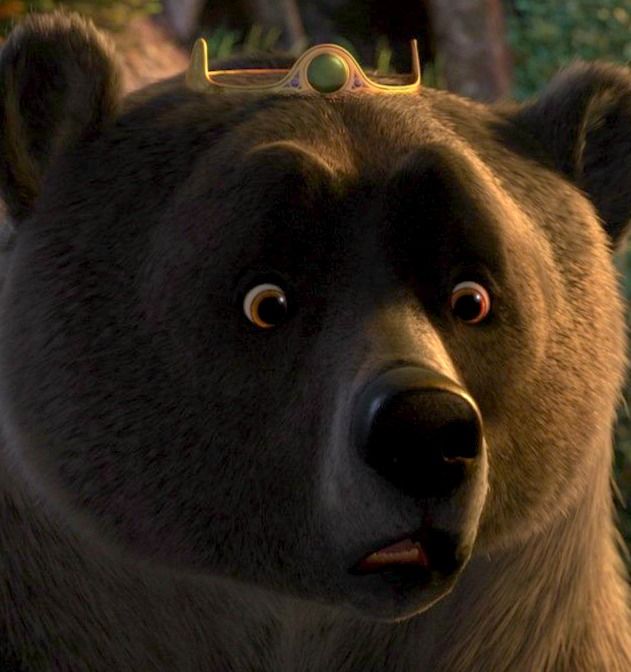
Mor'Du © Disney/Pixar

Mor'Du © Disney/Pixar
In Pixar’s Brave, the terrifying demon-bear Mor’Du, a former prince transformed into a bear by a witch’s curse, symbolises unchecked power and monstrous ambition. His name, derived from Gaelic words for “great” and “black,” (Wiktionary, n.d.) reflects his size, power and tendency towards darkness. For King Fergus, Mor’Du represents his very own Moby Dick, his greatest adversary. Like Ahab and the whale, he also lost his leg in a confrontation with the bear.
Bears died out in Britain over a thousand years ago. Their inclusion in the plot of Brave, therefore, implies a strong sense of taking place in a deep past and adds to the film’s mythos. Despite now being extinct there are clues to their importance to ancient Britons. The Gaelic word for bear “mathan” has its roots in a word meaning good, suggesting people once had a reverence and respect for bears (Matasović, 2009). In many European cultures it became taboo to call bears directly by name. Calling bears something akin to “the good one” therefore becomes a euphemism in a similar vein to the English word bear essentially meaning “the brown one”. The veneration of bears is also seen in the worship of a bear-god called Matunos in northern Britain as well as other bear-deities throughout Europe (Sjöblom, 2006).

Queen Elinor as a bear © Disney/Pixar
Queen Elinor’s and the prince’s transformations into a bear reflect several worldwide myths of creatures that can change form (Mallon, 2023), such as the selkie, seal-like creatures from Scottish mythology that can take on human form (McEntire, 2010). Whereas Elinor’s transformation into a bear allows her to reconnect with her daughter and reconcile their differences, Mor’Du’s is a punishment for his own selfishness and greed. He is unable to “mend the bond torn by pride” and make up with his brothers thus is cursed to remain a bear for eternity (Viswanath, 2017). In his desire for the witch to grant him “the strength of ten men” he becomes hypermasculinity incarnate, aggressive and mindlessly destructive (Morante, 2015).